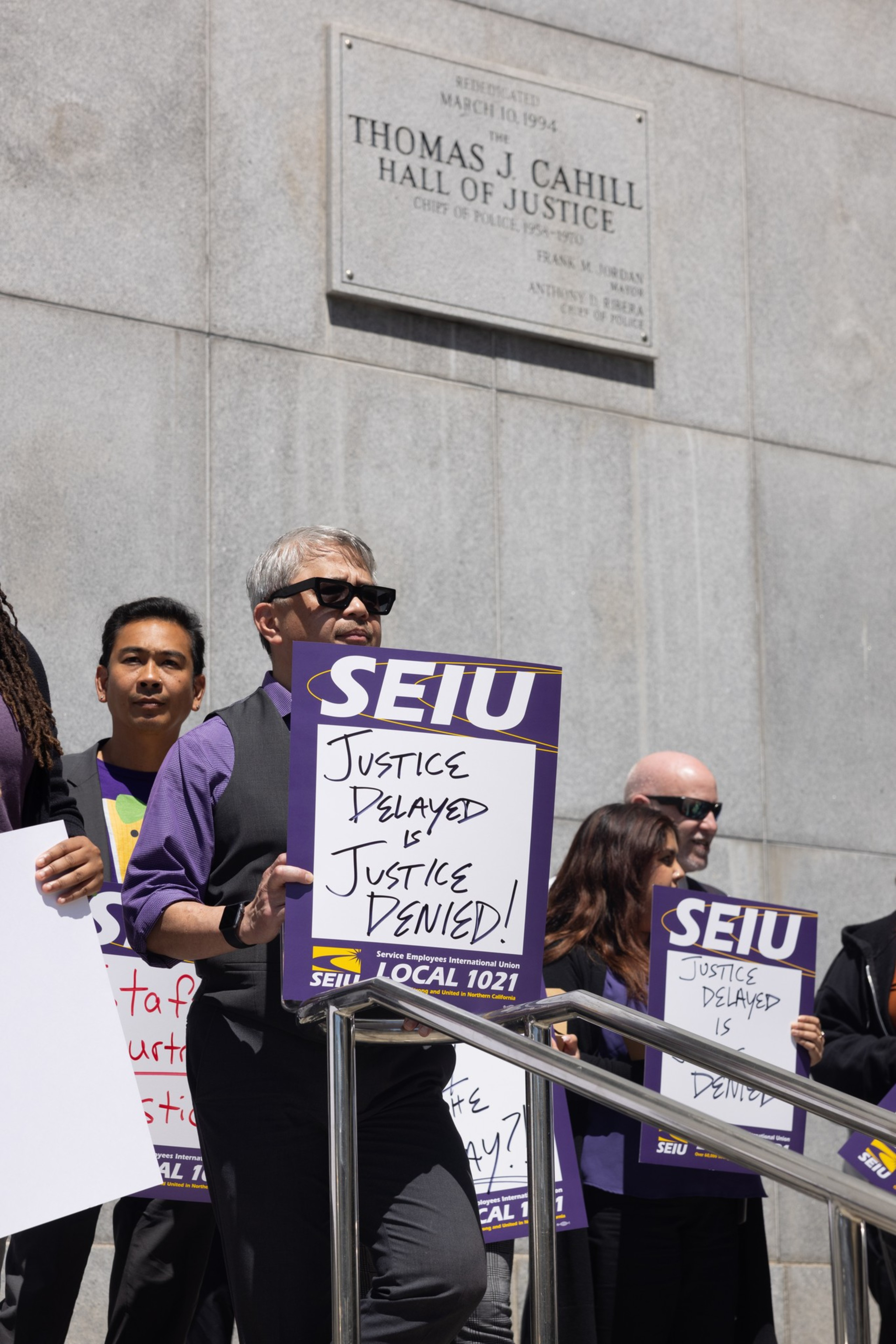San Francisco Superior Court staffers say they are understaffed and unable to keep up with paperwork, a situation that last week caused dozens of criminal cases to be dismissed.
While District Attorney Brooke Jenkins and Judge Anne-Christine Massullo have blamed each other for trial delays that forced 70 cases to be dismissed, court clerks rallied Tuesday to say they need better training and vacant positions filled to run the court more efficiently.
“We are being overworked and not consistently trained, which is causing problems because they’re not fully staffed all the time,” said Rodrigo Lopez, a deputy court clerk at the Hall of Justice, where he has worked for three years. “Right now, we talk about getting more police, more sheriff’s [deputies] hired, but nobody ever talks about the courtroom.”
Clerks are working through their breaks and lunch hours and taking assignments home with them to complete, the SEIU Local 1021 union alleged.
Last week, 70 cases involving domestic abuse, deadly driving, and other misdemeanors were thrown out following a July appellate court ruling that said San Francisco’s court delays were a violation of defendants’ right to a speedy trial.
Jenkins’ office, in statements, blamed the court for postponing trials and hearings long after pandemic measures had been lifted elsewhere. Massullo, meanwhile, faulted prosecutors for not prioritizing important cases.
Union officials said there are about 230 court workers, mainly clerks, in SEIU Local 1021. Open positions have been taking months to be filled, according to the union. (Not all Superior Court employees are members of SEIU. Some positions are part of other unions.) The San Francisco Superior Court declined to comment.
“It doesn’t have to be like this,” said clerk Rob Borders. “There’s so many times I’ve been in the courtroom, and other attorneys from other counties, other judges from other counties, they say, ‘Why is it done like this? Isn’t it any sense? What is this?’ And the answer is always just, ‘That’s the way that we do it.’”
Jasmine Real, a clerk for eight years, described taking shorter breaks and uncertainty around vacation approvals. “They put us on a waitlist,” Real said. “A lot of times, we don’t know if it gets approved or not until the week before, so there’s no transparency.”
Benjamin Thompson, a clerk who has worked at the court since 2007 and handled cases in its traffic and criminal divisions since 2014, said the stakes are high, particularly in tasks such as completing forms involved with sentencing people to state prison.
“These are real-world consequences for real people,” Thompson said. “This isn’t like forgetting bacon on a burger. We’re the ones that are supposed to make sure that the wheels turn here. How can we when they don’t even tell you how the machine works? Not to make a pun, but that’s criminal.”
